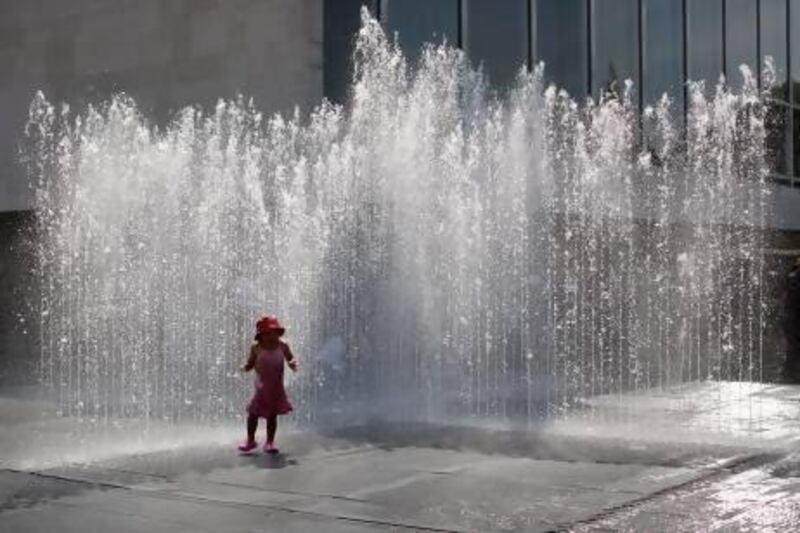With temperatures in London set to rise as high as 33°C, Londoners complain they need to swathe themselves in damp towels to sleep, the M25 motorway that encircles the capital melted, and hospitals are treating heat stroke victims. The same weather in the UAE would be a pleasant spring day.
The "urban heat island" was first noticed in London as far back as 1810 - like other big cities, it is up to 5 degrees warmer than the surrounding countryside, as bricks and concrete retain heat, and dark surfaces absorb the sun's rays.
Britain's capital is not built for high temperatures: most homes don't have air conditioning, and the underground trains become uncomfortably hot.
This illustrates the importance of adapting to climate change. London swelters in moderate temperatures, just as Sharjah grinds to a halt in a rain shower a Londoner would consider fine weather. With the climate already hot and arid, the Arabian Gulf may feel it has little to fear from climate change - but this would be a mistake.
Of course, the Gulf countries need to reduce their own carbon footprint. They need to set an example by reducing their high greenhouse gas emissions. In future, their reputation as tourism and financial centres will be threatened, and their exports may face carbon tariffs.
More positively, research into low-carbon technologies for the Gulf can create new industries and diversify the economy.
But whatever the GCC does, significant climate change is unavoidable. When Ramadan again falls in the hot and thirsty summer, in the 2040s, regional temperatures are expected to be 3-5°C higher - meaning more strain on air conditioning.
Higher temperatures encourage the formation of smog and the spread of diseases.
Ecosystems in the already hot, saline Gulf will suffer further. Corals may die off from excessive temperatures and increasingly acid waters. Coral reefs are important breeding grounds for fish, and shelter coastlines from destructive waves. The eastern Mediterranean is expected to dry out, putting further stress on rural societies and fragile states in Iraq, Syria and Jordan - leading to more waves of refugees. Farther south, rainfall may increase, but this brings with it other dangers.
Cyclone Gonu, the strongest tropical cyclone to hit the Arabian Peninsula, killed 50 people in 2007 and caused US$4.2 billion of damage in Oman.
Both of Oman's desalination plants were shut down, and oil exports halted. Sea levels may rise by a metre or more by 2100, inundating fragile coastal mangroves. The UAE's nuclear plants in Al Gharbia, and the cultural district at Saadiyat, explicitly included rising seas in their planning. The Palm Jumeirah factors in a half-metre rise.
But many other key parts of Gulf infrastructure - the Jebel Ali port, the world's largest oil export terminal at Saudi Arabia's Ras Tanura, the power and desalination plants - could be threatened. Adaptation to climate change has to go beyond mere technical fixes to infrastructure and be an integral part of long-term plans.
Solutions should be both local and global. Climatic changes may be unexpected, so cities have to be resilient and flexible.
For instance, local solar power, better insulated homes and cities designed to stay cool can alleviate rising temperatures and strains on the electricity grid. Instead of passively waiting for government aid, people have to be prepared to support those within their community.
On the international stage, Gulf countries should work together with Middle Eastern neighbours on issues such as disaster relief, evacuations, dealing with people displaced by disasters, coastal protection, emergency food and water stocks, drought-resistant agriculture, back-up electricity grids and climate negotiations.
London's survival is not threatened by a heatwave. But in a more precarious climatic zone, the Gulf countries should remember that a blazing hot summer's day today may be 2050's normality.
Robin Mills is the head of consulting at Manaar Energy, and the author of The Myth of the Oil Crisis and Capturing Carbon
Gulf is only going to get hotter - so we must be prepared
The world is just going to get hotter. Solutions should be both local and global. Climatic changes may be unexpected, so cities have to be resilient and flexible.

More from the national




